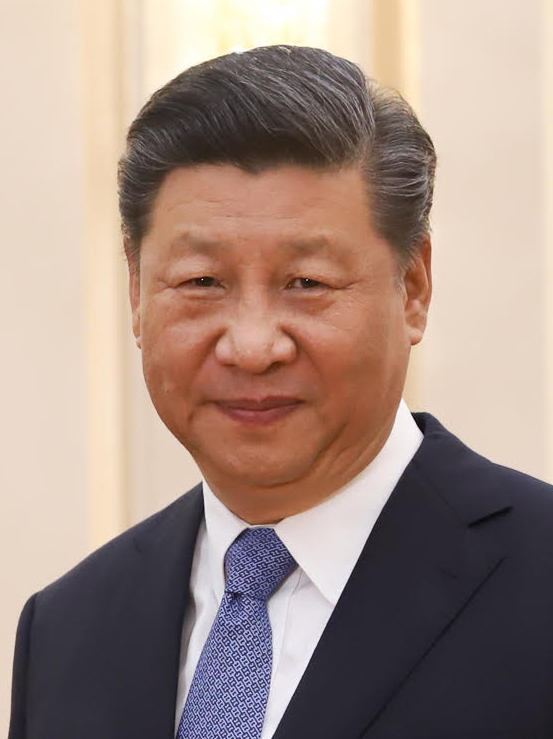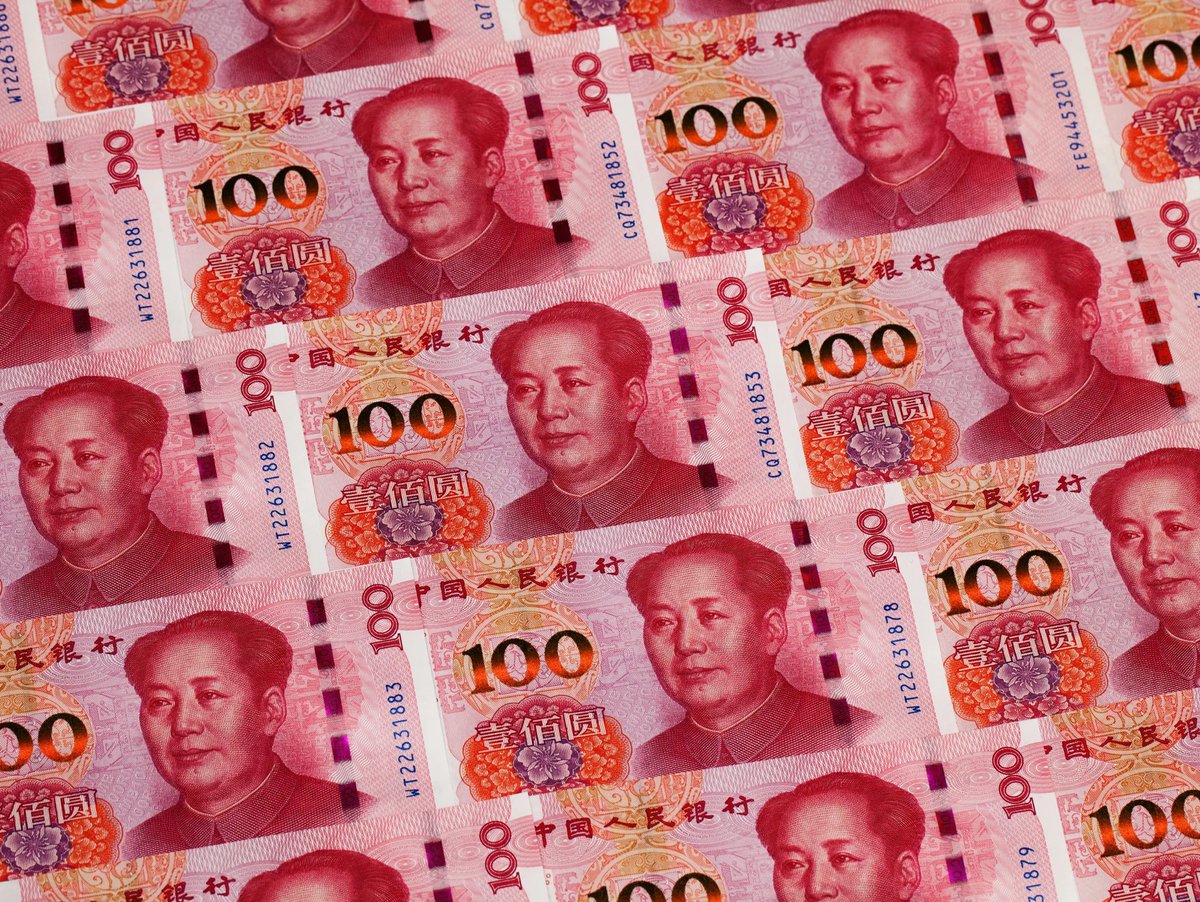
My op-ed "The case for a paradigm shift in German China policy" has been published in @china_table. It is a response to @ESandschneider's critique of "China bashing" from 31 March 2021. What follows is a translation of my German-language article /1
table.media/china/2021/04/…
table.media/china/2021/04/…
In my op-ed I argue that Sandschneider overlooks the totalitarian turn in China under Xi Jinping. His demands for dialogue and cooperation may sound plausible. However under the conditions of "Document No. 9" there can be no open-ended intercultural dialogue with China /2 

When reading Sandschneider's op-ed I had a sense of déjà vu. In an article for APuZ in 2012 - at that time he was director of the German Council on Foreign Policy - he formulated a very similar criticism of a value-based German foreign policy /3
bpb.de/apuz/75784/deu…
bpb.de/apuz/75784/deu…
For full disclosure I should mention that I did my PhD with Sandschneider at Free University of Berlin /4 nottingham.ac.uk/politics/peopl…
The topic of my PhD thesis published by Springer VS in 2009 was "Promoting participatory development in the PR China" /5
amazon.com/F%C3%B6rderung…
amazon.com/F%C3%B6rderung…
Based on my experiences as a practitioner working for German development cooperation (2003-07) I made the case for democracy promotion in the People's Republic of China /6
webcache.googleusercontent.com/search?q=cache…
webcache.googleusercontent.com/search?q=cache…
I give Sandschneider great credit that despite our rather different assessments of German foreign policy he assessed my PhD thesis not only fairly but positively. It thus gives me no pleasure in developing a fundamental critique of his op-ed in @China_Table twelve years later /7 

I formulate my opposing views in the spirit of Ruth Bader Ginsburg: “[one] can disagree without being disagreeable” /8 

Sandschneider's perspective on Western relations with China reveals a curious continuity. While his attitudes towards German foreign policy appear unchanged, since 2012 we have witnessed in China a totalitarian turn under Secretary General Xi Jinping /9 

Sandschneider is apparently not aware of the resulting tension. Instead he criticises "moralising China policy". He also condemns double standards in American and European China policy, which in his view primarily pursues geopolitical and economic goals /10
According to Sandschneider military tensions in the cross-strait can only be blamed on the "foreign policy pursuit of a US government that has almost been dismissed from office". He also criticises Western Magnitsky sanctions against Chinese officials /11
He argues that the latter sanctions have only led to dialogue channels being "blocked". At the same time he advocates "quiet diplomacy" /12 

Sandschneider castigates the supposed "megalomania" of all those who believed they could "manage" the rise of China". Surprisingly he later calls himself "China policy in the West a permanent management task" /13 

Sandschneider describes any criticism of the political situation in the People's Republic of China as "China bashing" /14 

Instead he demands "that one has to talk, negotiate, perhaps even argue with this country and its government in order to find solutions that are acceptable to all sides" /15 

His calls for dialogue and cooperation may sound plausible but in fact completely ignore political and practical obstacles /16 

During my development work in China I supported diplomats at the German embassy in Beijing and helped organise and conduct meetings between German decision-makers (eg Stanzel, 2004; Thierse, 2005; and Steinmeier, 2006) and Chinese NGO representatives /17 

From 2011 until 2014 I also coordinated the implementation of an EU-China dialogue programme on behalf of the European Commission. Such genuinely open-ended intercultural encounters could still take place before and shortly after Xi Jinping took office /18 nottingham.ac.uk/iaps/documents…
However in 2013 and with "Document No. 9" the Chinese Communist Party (CCP) declared constitutional democracy, universal values, civil society, independent journalism and criticism of the party to be absolute taboo topics /19
chinafile.com/document-9-chi…
chinafile.com/document-9-chi…
They are taboos both in the domestic discourse and international dialogue with China. This document marked the end of the 'semi-liberal' era under General Secretary Hu Jintao (2002-2012) /20
theguardian.com/world/2015/apr…
theguardian.com/world/2015/apr…
What are the possibilities for fruitful cooperation based on mutual recognition and reciprocity or for intercultural dialogue if the dialogue systematically excludes democratic values and the speech code of the Xi discourse is binding on the Chinese side? /21 

The political censorship of the Xi regime now penetrates all essential areas of German-Chinese cooperation: /22 

for example when civil society cooperation is restricted to a few regime-compliant topics and the existing NGO trust networks are systematically undermined or destroyed; /23
nottingham.ac.uk/asiaresearch/p…
nottingham.ac.uk/asiaresearch/p…
if the framework conditions of the cooperation endanger the academic freedom and autonomous scientific cooperation; /24
universityworldnews.com/post.php?story…
universityworldnews.com/post.php?story…
or if the party-state distorts the necessary level playing field of economic cooperation based on equal opportunities, reciprocity and mutual benefit for the unilateral long-term advantage of China /25
reuters.com/article/us-chi…
reuters.com/article/us-chi…
The short-term win-win situation for individual German companies has so far been associated with long-term and one-sided win-lose development cooperation, which has shaken confidence in the commitments made by the Chinese party-state /26
wsj.com/articles/how-c…
wsj.com/articles/how-c…
Why should it be any different this time? I therefore consider it worrying that Sandschneider does not utter a single word of criticism about the increasing economic dependency of German companies on the Chinese market /27
ft.com/content/0387a0…
ft.com/content/0387a0…
German SMEs should be aware that "Made in China 2025" poses a direct threat to the goal of "Industry 4.0". The CCP intends to instrumentalise and co-opt German industry first and then replace it in the long term /28
fdd.org/analysis/2020/…
fdd.org/analysis/2020/…
Instead of talking about such challenges in German-Chinese relations, Sandschneider limits himself to commenting on the geopolitical rivalry between the US and China /29 

I would have expected (self-) critical reflections on German China policy from a long-time advisor to the German government instead. But when it comes to failures on the German side, Sandschneider remains conspicuously silent /30 

For example is a German policy on China which is strongly focused on promoting trade and commerce still fit for purpose? /31
foreignpolicy.com/2020/09/15/chi…
foreignpolicy.com/2020/09/15/chi…
Even when the barricades were already burning in Hong Kong in the summer of 2020 the German Minister for Economic Affairs Altmaier still invoked the long obsolete slogan "change through trade" /32
politico.eu/article/peter-…
politico.eu/article/peter-…
But it should be clear to everyone by now that the sale of German cars did not lead to liberal-democratic change in China /33
aljazeera.com/economy/2020/1…
aljazeera.com/economy/2020/1…
In addition since 1989 Germany's China policy has never followed the primacy of politics. When working within the German development system I witnessed how senior leaders talked disparagingly about members of the Bundestag who travel to China /34 

It was clear to development practitioners that China policy was not shaped by German lawmakers but by representatives of the Asia-Pacific Committee of German Business (APA) /35
asien-pazifik-ausschuss.de/en
asien-pazifik-ausschuss.de/en
I consider it problematic that since Schröder's chancellorship German China policy has largely been determined by the interests of the German private sector /36
https://twitter.com/AMFChina/status/1305414754392047618?s=20
While such a corporatist approach has secured enormous corporate profits in the short term, it is questionable that business lobbyists dictate the contours of Germany's China policy /37 

And for companies the benefits in many industries were often rather short-term. They were subsequently marginalised in unfair competition. The decline of the German solar industry is an example of this misguided development /38
dw.com/en/chinese-exp…
dw.com/en/chinese-exp…
The current status quo is not a sustainable German industrial policy and China policy. On this question I agree with Nils Schmid @NilsSchmid, the foreign policy spokesman for the SPD parliamentary group /39
vorwaerts.de/artikel/nils-s…
vorwaerts.de/artikel/nils-s…
In an interview with the Financial Times he pointed out that Germany "need[s] a real foreign policy for China - not just a business-oriented policy" /40
ft.com/content/0de447…
ft.com/content/0de447…
A new German China policy must critically assess the totalitarian turn of the Xi regime /41
sinocism.com/p/engineers-of…
sinocism.com/p/engineers-of…
To this end the German federal government should set up a cross-departmental task force for dealing with authoritarian states, which is tasked to develop recommendations for actions taken on both the federal and state level /42 

In his contribution to APuZ in 2012 Sandschneider called for "a foreign policy elite to move up which has the necessary competence to deal with new global challenges". On this point I actually agree with him /44 

For a paradigm shift in German China policy to occur we now need a new programme and new personnel /End 

@threadreaderapp unroll
• • •
Missing some Tweet in this thread? You can try to
force a refresh








